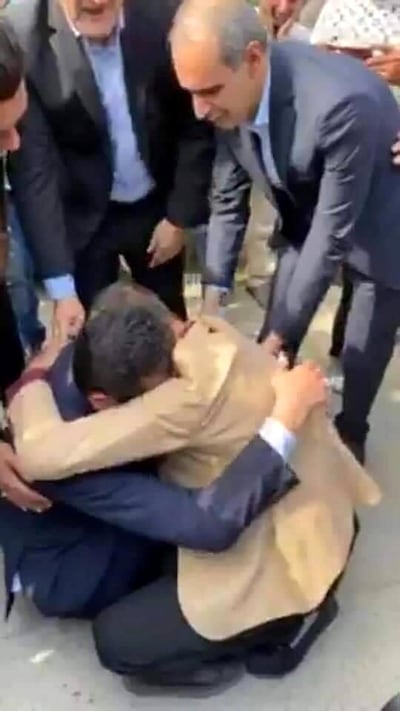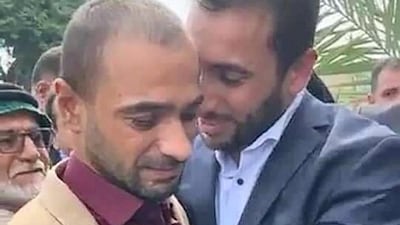Haider Al Mousawi posted a photo of his baby brother, Ahmed, last week to mark 40 years since his execution, not knowing he would be reunited with a “living martyr” a few days later in Baghdad.
The photo, posted on Facebook, circulated on various Iraqi WhatsApp groups until one woman recognised Ahmed as her adopted brother.
In 1980, the brothers' father was jailed by former dictator Saddam Hussein’s Baathist regime on suspicion of being a member of the Shiite Dawa Party, which was banned.
The two brothers, toddlers at the time, were put behind bars along with their parents, in separate cells.
“On this day, 40 years ago, I was detained in prison," Haider said in the Facebook post. "You might ask me, 'How old are you now?'
"I’m 44 years old and in 1980 I was four years old, and I recall everything that happened to me.
“If you have a father who is associated with politics, how is that your fault?
"Time is beautiful because the Baathists have gone. But my whole family was killed and I was the only one who managed to escape from prison."

Haider’s grandmother managed to smuggle him out of the jail under her abaya, but she left Ahmed behind.
The family believed Ahmed was executed along with his parents at the hands of the Baathists.
But he was found at a police station a few years later and raised by a local neighbourhood chief.
“The picture of Ahmed as a baby was shared nearly a million times and I never thought, in my life, that I would meet him again,” Haider told a local newspaper.
The brothers finally met in an emotional reunion in Baghdad on Saturday.
“This story doesn’t pertain to two people only, it summarises the pain of a nation. My brother is a living martyr,” Haider said shortly after.
“God wanted us and the blood of the martyrs to live on. The case of Ahmed will become a public issue. There will be one thousand Ahmeds!”
The brothers' story exemplifies thousands of cases that are “waiting for justice” and to which the media and world have turned a blind eye, said Ali Al Bayati, a member of the Iraqi Human Rights Commission.
"It is a truly painful story that expresses the extent of the horrendous and ugly crimes that targeted the Iraqi people, especially certain societies, by the previous Baath regime, which used to derive its strength, presence and arrogance from regional and international support," Mr Al Bayati told The National.
“All the crimes committed are crimes against humanity and what is revealed here is a drop in the ocean."


